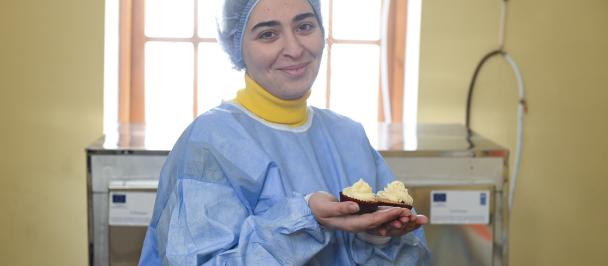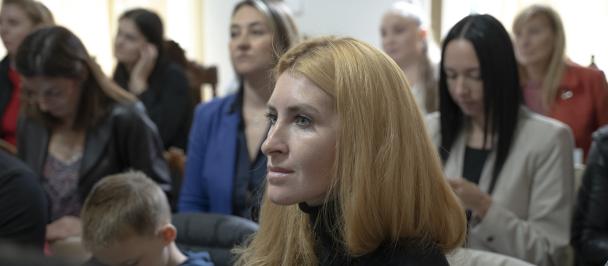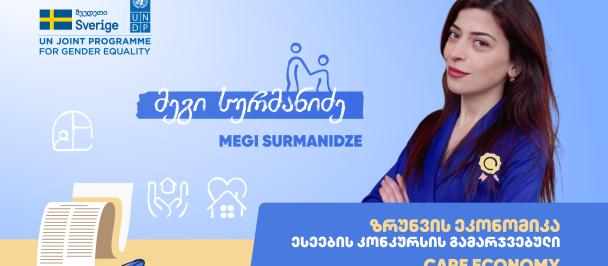UNDP, Sweden, and NCDC Work Together to Foster Vaccination in Georgia
Needle Trust: Fostering Immunization Dialogue in Georgia
December 22, 2023
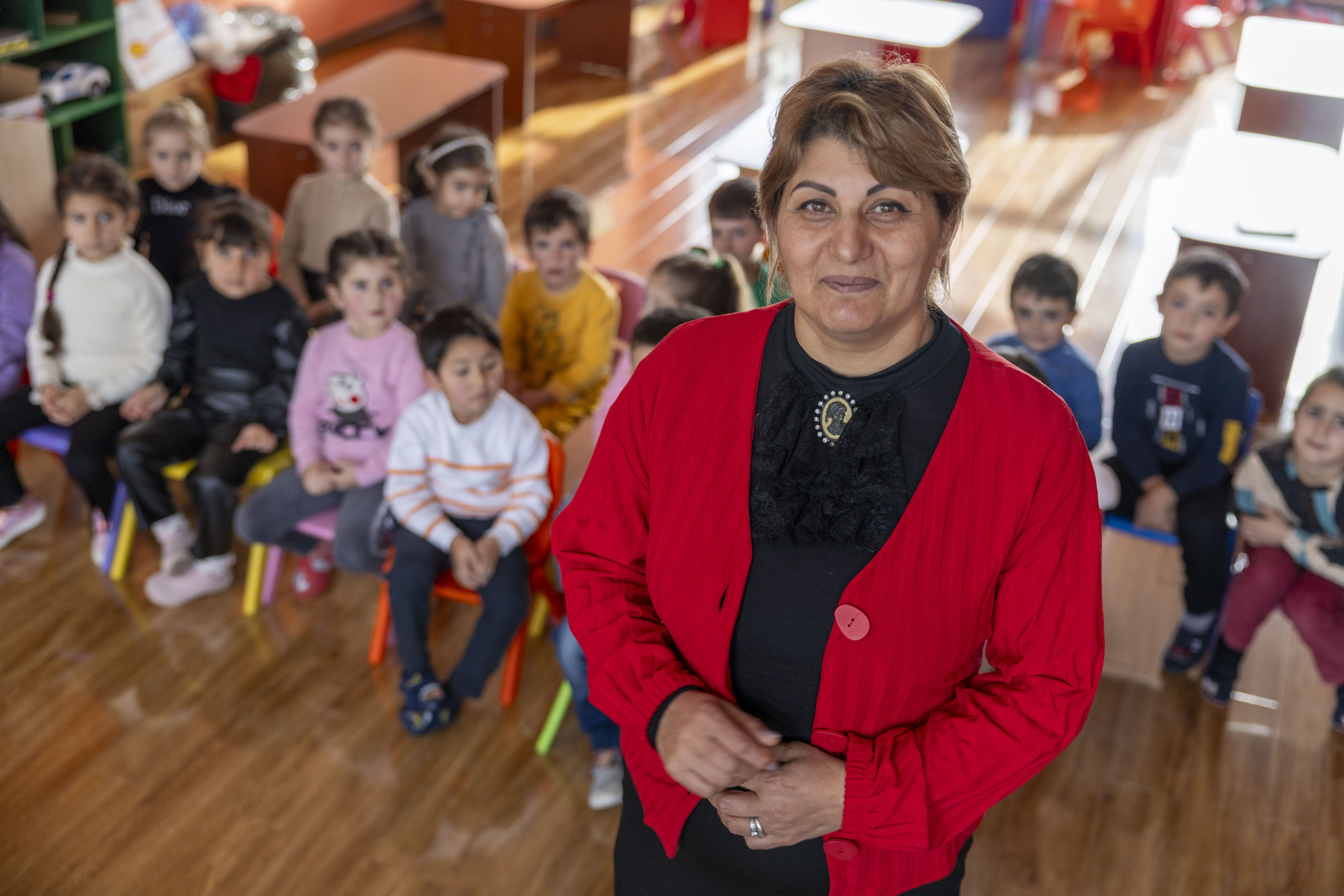
Marina Aghajaniani at the Akhalkalaki Kindergarten
"I wasn't certain about the importance of vaccination. However, when a family doctor explained the benefits, I not only ensured my grandchildren received all necessary vaccines, including a vaccine for human papillomavirus but also motivated my friends and colleagues to do the same,” says Marina Aghajaniani, a kindergarten teacher from Akhalkalaki Municipality in Georgia’s Samtskhe-Javakheti region.
Like many other people in Georgia, Marina Aghajaniani was not entirely convinced that vaccines could save lives and protect health.
Vaccine hesitancy, a pre-existing issue in Georgia, became even more pronounced during the COVID-19 outbreaks in 2020 and 2021, with misinformation affecting various social groups, particularly those who are socially and economically disadvantaged. A study conducted in 2021 revealed several reasons spanning from the fear of potential side effects (55%) to scepticism towards newly developed vaccines (23%) and general distrust towards emerging technologies (11%). Another 11 percent of the respondents cited religious beliefs, fertility concerns, and health-related complaints (Source: Georgian Red Cross Society. 2021).
The consequences were dire: by the end of 2021, up to one-third of Georgia's population had been infected with almost a million registered cases, 42 percent nationwide and 47 percent in rural areas lacked access to accurate vaccine information, and only 37.9 percent of the population aged 12 and above were fully vaccinated (Sources: World Health Organization, National Democratic Institute).
In response to these challenges, UNDP extended its support to the National Centre for Disease Control and Public Health (NCDC), Georgia's leading institution responsible for responding to existing or emerging health threats.
In 2021, UNDP and NCDC, in collaboration with the European Union, Sweden, Switzerland, the United Kingdom, and the UN Joint Fund for the Sustainable Development Goals, launched the nationwide "Vaccines4Life" campaign. This initiative reached out to over 80,000 people across Georgia, delivering messages of health, knowledge, and hope.
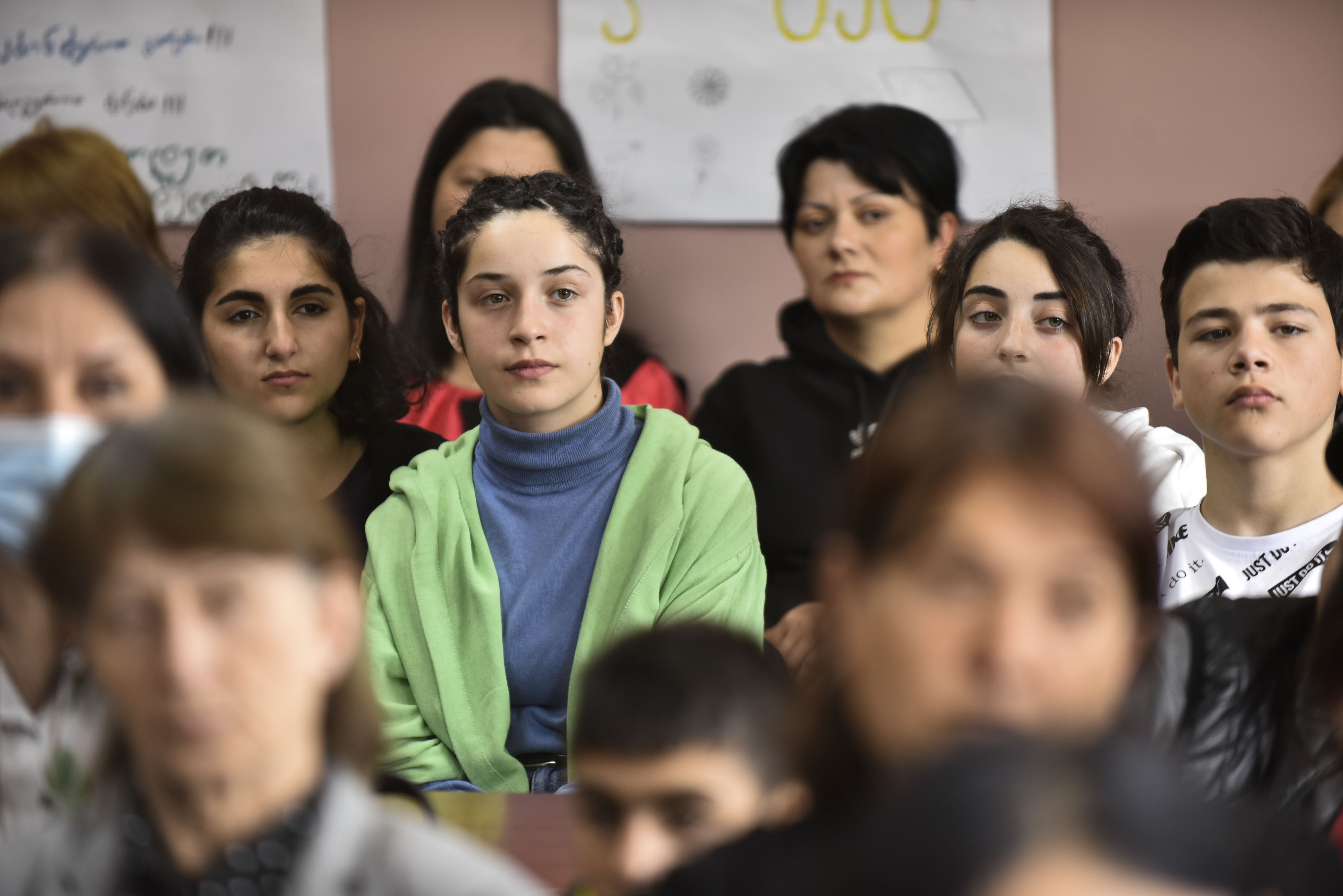
Immunization meeting in Georgia's Kvemo Kartli region.
As Georgia emerged from the pandemic's grip, UNDP's partnership with NCDC shifted its focus to other issues, including general immunization and particularly, human papillomavirus (HPV).
According to NCDC, cervical cancer, often caused by HPV, is one of the top five malignant diseases in Georgia. In 2021, 281 new cases and 151 deaths were registered. However, the vaccination rate among the target group covered by the National Vaccination Programme (10-12-year-old girls) did not exceed 24 percent. Although the situation slightly improved in 2023, as the National Vaccination Programme expanded to women aged 10 to 45 years old and boys aged 10-12, the increased vaccination rates were still insufficient to significantly decrease HPV's spread in Georgia.
UNDP and NCDC, with support from Sweden, were determined to address these challenges by equipping both Georgian citizens and healthcare professionals with the knowledge and skills needed to combat HPV and promote vaccination.
The immunization campaign, implemented from October 2022 to April 2023, covered 13 municipalities in the Kvemo Kartli and Samtskhe-Javakheti regions, actively involving local communities, representatives of ethnic minorities, civil society organizations, and primary healthcare workers. The programme had a transformative effect on healthcare professionals, enhancing their knowledge, boosting confidence, and igniting motivation to take preventive healthcare to a new level in their respective municipalities.
On-site communication training engaged over 820 local health professionals, providing them with a trusted space to express their concerns, ask questions, and share practical insights with their peers. Many nurses received training on immunization and vaccination-related topics for the first time, while both physicians and nurses delved into health communication, a skill they later considered crucial when working with patients. Language barriers, which had especially affected nurses from ethnic minority groups, were effectively dismantled with the help of translators who bridged the gap and dispelled misconceptions.
Nino Zedginidze, Head of NCDC's Samtskhe-Javakheti regional branch, noted that the campaign's impact extended beyond healthcare institutions to municipal authorities and public agencies. "Workshops with local government representatives not only increased their awareness of infection control, risk communication, and population mobilization strategies but also supercharged participants' confidence and motivation to plan communication interventions for addressing health challenges and foster prevention measures in their communities. Following our campaign, a total of 723 beneficiaries were immunized in Shida Kartli and Samtskhe Javakheti regions."
In a world where health challenges persist, education, training, and community involvement can make a significant impact. With informed healthcare workers and empowered communities, we have a better chance of protecting people from health challenges, such as COVID or human papillomavirus.
As Marina Aghajaniani says: "This experience has taught me that knowledge is power. Now I stand with confidence in safeguarding my own health and the well-being of those I love."

 Locations
Locations

